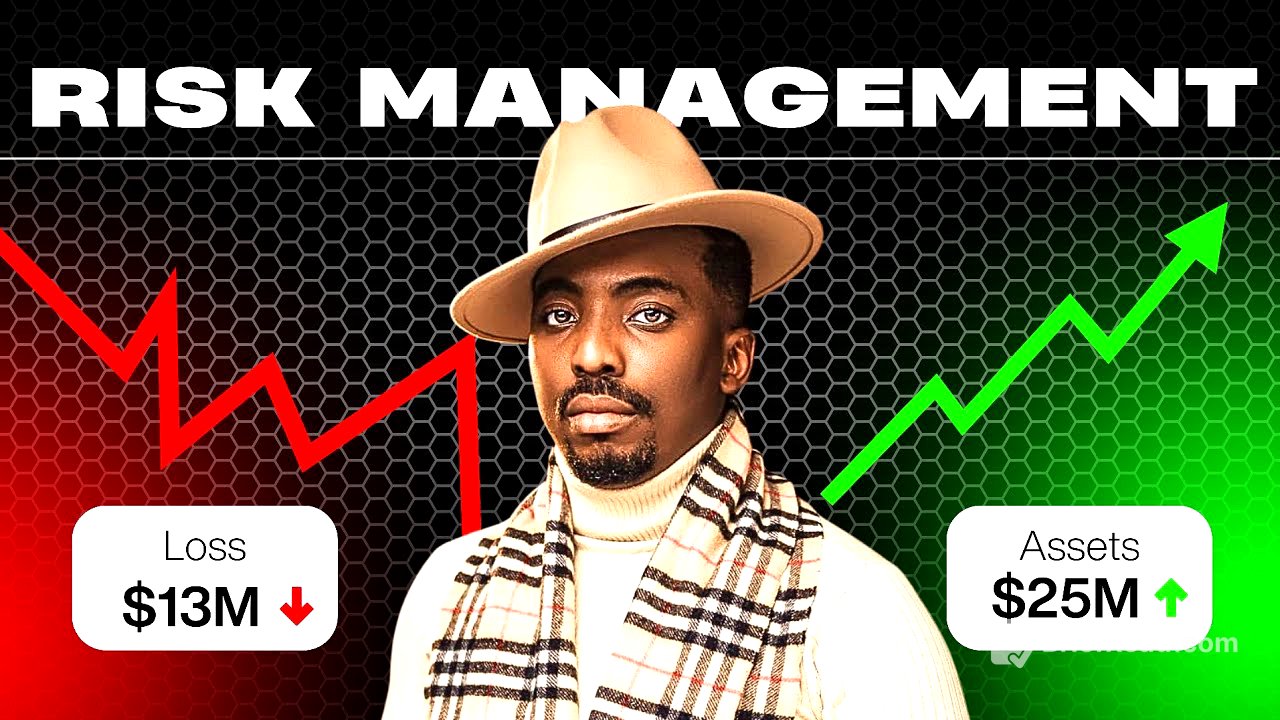TLDR;
The speaker shares his personal journey and insights on scaling in the forex market, emphasizing the importance of long-term vision, continuous learning, and understanding the industry's value chain. He outlines four critical areas for success: mastering market sentiment, understanding market structure, managing psychology, and building capacity in investor relations and luxury sales. The speaker encourages traders to pursue professional development, seek accountability, and structure their lives for sustainable wealth creation.
- Long-term vision is crucial for success in trading.
- Understanding the forex industry's value chain is essential.
- Mastering market sentiment and structure are key skills.
- Psychology and self-awareness play a significant role in trading.
- Continuous capacity building in investor relations and luxury sales is necessary for scaling.
Introduction and Appreciation [0:00]
The initial speaker introduces Sir Aimi Olui as a mentor and coach, highlighting the value of learning from experienced individuals up close. He emphasizes that true understanding comes from paying the price to learn directly from those who have achieved success. Sir Aimi Olui then takes the stage, expressing gratitude to the Tradewave team and acknowledging fellow professionals in the industry, including Mr. Emanuel, Mr. Toya (the NFP god), Mr. David Acham, Apostle MJ Young, Mr. Maywa, Mr. David Harvey, and his team from Valley Flow Trading (VFT). He celebrates the shift from being a lone ranger to building structured teams in the trading industry.
The Speaker's Entry into Trading [6:48]
The speaker shares his personal story of entering the trading world around 2007-2008, driven by a desire to build long-term wealth and a legacy for his family. He recounts researching various wealth-generating activities, including mass retail, oil and gas, and financial services, ultimately choosing securities trading due to its relatively low barriers to entry. He stresses that trading should be viewed as a long-term career path rather than a quick fix for financial problems, advising those seeking instant wealth to consider crypto instead.
The Importance of Long-Term Vision and Passion [11:07]
The speaker emphasizes that a genuine passion for the trading industry is essential for long-term success. He advises the audience to reflect on their reasons for trading, as the journey requires significant commitment and resilience. He shares anecdotes of individuals with substantial wealth, highlighting the level of liquidity and financial freedom that can be achieved through trading. He also discusses his wife's baking career, illustrating how any field can generate significant wealth with the right approach and dedication.
The Realities of Trading and the Need for Professionalism [13:39]
The speaker cautions against the misconception that trading is the only path to wealth, particularly in Nigeria. He stresses the importance of having a natural passion for the industry and enjoying the process of problem-solving. He shares a personal experience of a significant trading loss and the emotional impact it had on him, underscoring the need for conviction and a long-term perspective. He also highlights the importance of focusing on becoming wealthy rather than just appearing wealthy.
Structuring for Success and the Value Chain of Forex [16:15]
The speaker emphasizes the importance of structuring one's life and business to create systems for sustainable wealth. He shares an experience where an investor questioned his business continuity in case of his death, highlighting the need for a solid structure. He then transitions to discussing the value chain of the forex market, inspired by a conversation with a successful trader. This led him to explore various aspects of the industry beyond just trading charts, such as brokerage and education.
Understanding the Forex Industry and Professional Development [24:10]
The speaker stresses the importance of professional development and continuous learning in the forex industry. He encourages traders to pursue finance exams and open online courses to expand their knowledge. He contrasts the professional outlook of other industries, such as medicine and real estate, with the often-glamorized view of trading. He emphasizes that trading should be approached as a profession, requiring a deep understanding of the entire value chain.
The Importance of Sentiment Analysis [27:11]
The speaker emphasizes the importance of understanding the entire value chain of the forex market, including brokers and educators. He notes that brokers often have more longevity than traders, suggesting a key difference in their approach. He encourages traders to think and talk like professionals, focusing on intelligent analysis rather than just following basic indicators. He also highlights the various ways to make money within the forex industry, beyond just trading.
Mastering Market Sentiment for Long-Term Success [31:20]
The speaker shares his journey of working for a broker to stay in the industry while improving his trading skills. He emphasizes that the biggest profits come from trading, but it's essential to learn other skills to survive until one becomes proficient. He also addresses the common question of why successful traders sell courses, explaining that it's part of understanding the entire value chain and generating income while honing their trading abilities.
The Analogy of Holding the Market and the Importance of Seeking Help [36:01]
The speaker uses an analogy of holding someone's hand to illustrate the different levels of control traders have over the market. He emphasizes the importance of admitting one's current level and seeking help to improve. He then outlines four key areas that anyone looking to scale in the forex market must master: sentiment, structure, psychology, and capacity building.
Understanding Market Sentiment and Economic Themes [40:24]
The speaker explains that mastering market sentiment involves understanding the long-term direction of the market and the economic themes driving it. He identifies five to six key themes that move the market, such as dollar demand, dollar aversion, risk on/off, portfolio rebalancing, and interest rates. He uses examples like Euro USD and Bitcoin to illustrate how these themes influence market movements.
Mastering Market Structure and Liquidity [45:11]
The speaker emphasizes the importance of understanding market structure, which involves recognizing how liquidity is created and consumed. He explains that market structure consists of two things: creating liquidity and consuming liquidity. He advises traders to look for places the market has not been to before and to understand inefficiencies, such as larger than normal candles. He also promotes the free TDA (Top-Down Analysis) offered by his team, which helps traders analyze pairs and identify potential trading positions.
The Crucial Role of Psychology in Trading [48:51]
The speaker underscores the critical role of psychology and self-awareness in trading. He warns against learning trading on the wrong foundation, as it can negatively impact one's psychology and trading performance. He shares a personal anecdote of a student who surpassed his trading results, highlighting the impact of psychology on trading decisions. He advises traders to preserve their psychology by trading with money they can afford to lose and creating a professional trading environment.
Building Capacity and Understanding Investor Relations [52:58]
The speaker stresses the importance of community and accountability in maintaining a healthy trading psychology. He shares his experience of trading alongside his team and being held accountable for his trading decisions. He also emphasizes the need for a professional trading environment and continuous self-improvement.
Scaling Up: Investor Relations and Luxury Sales [56:18]
The speaker concludes by discussing the importance of capacity building for scaling up in the forex market. He advises traders to study investor relations and luxury sales to attract high-net-worth individuals (HNIs) and manage investments professionally. He encourages traders to learn about the lifestyles and mindsets of wealthy individuals to better understand their needs and expectations. He concludes by reiterating the importance of mastering the four key areas – sentiment, structure, psychology, and capacity building – for long-term success in the forex industry.








